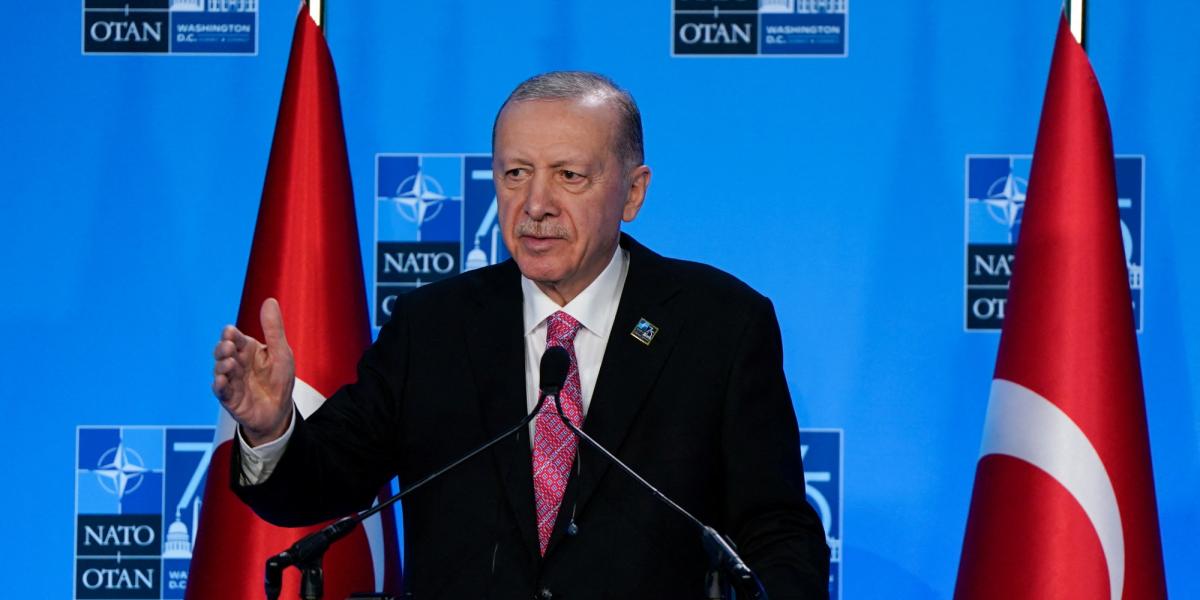US Judge Thwarts Trump's Media Cuts
Explore the significance of a federal judge's decision blocking Trump's administration from axing USAGM media outlets, affecting Voice of America and Radio Free Europe.
Published March 30, 2025 - 00:03am

Image recovered from arynews.tv
In a recent landmark decision, a federal judge in the United States has temporarily blocked the Trump administration's efforts to dismantle several government-funded media outlets, including Voice of America (VoA) and Radio Free Europe. This ruling comes amidst growing concerns over the administration's moves to curb press freedom and its potential implications for the First Amendment.
Judge J. Paul Oetken's decision emphasized that the Trump administration's attempt to unilaterally terminate these media outlets was unauthorized and bypassed the powers vested in Congress. He highlighted that any cessation of these programs, which are funded and approved by legislative decree, would indeed require formal congressional approval. The court's ruling underscores the judiciary's role in upholding the constitutional checks and balances designed to protect media independence and press freedom in the United States.
The legal action faced by the administration centers on allegations of trampling the First Amendment rights of over 1,300 employees who faced the possibility of job termination. The ruling was hailed as a victory for press freedom by Andrew Celli, the attorney representing the journalists involved in the lawsuit. Organizations such as the U.S. Agency for Global Media, responsible for overseeing these media services, have faced significant backlash as they attempted to navigate the budget constraints imposed by the government. Unions have argued that any drastic employee cuts would irrevocably impair the capacity of these organizations to deliver news services as envisaged by Congress.
Moreover, the court's ruling has significant historical implications. Voice of America, established during the era of Nazi propaganda in World War II, has not only been a beacon of free press in an era of authoritarian control but also a promoter of U.S. values worldwide. Its services are broadcasted in over 40 languages, providing crucial information in regions suffering from media censorship. The potential reduction of its staff could significantly shrink its reach and impact, contrary to its mission of enhancing the United States' soft power influence internationally.
Critics of the Trump administration's move argue that the attempts to close these media services are part of a broader agenda to silence dissent and control media narratives that oppose the government. This controversy has drawn attention to the delicate balance between government management of publicly funded media and preserving independent journalistic standards free from political influence. These media outlets, since their inception, aim to counteract global misinformation and promote democratic ideals, making the attempted shutdown a contentious political issue.
While Judge Oetken's ruling provides temporary respite, the situation remains unresolved. The broader implications of the administration's efforts to close media outlets are expected to be further scrutinized in ongoing and upcoming court proceedings. The Trump administration, while being adamant about budget cuts, faces significant legal and public pressure to reassess its stance on media funding and freedom.
Amid these developments, key players within the Trump administration, such as Brent Bozell, a vocal critic of media biases, have been influential in shaping the discourse surrounding the proposed media cuts. The administration argues that NPR and PBS are redundant relics of the past and expensive luxuries in the current media landscape, where vast options are available in the private sector. Trump has openly expressed a willingness to streamline and cut funding to these services he perceives as biased, asserting that they are not essential for modern media consumption.
Set against the backdrop of a polarized political environment, the debate over VoA's fate is emblematic of broader tensions regarding federal funding for media and the perceived encroachment on press independence. The narrative has only been intensified by statements from high-profile figures like Elon Musk, aligning with the administration's critical view of these publicly funded entities. The situation encapsulates ongoing tensions between media entities and governmental powers that wish to redefine the role and scope of public media in America's informational landscape.
Ultimately, the forthcoming judicial outcomes will not only determine the future of these storied media institutions but will also set significant precedents for media freedom and government intervention in the United States. The Judge's action is the first step in what could be a protracted battle in the courts to safeguard press freedoms that have long been a cornerstone of democratic society.







